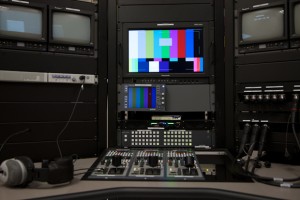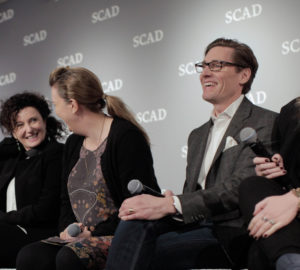By Nyasha Mandiveyi

SCAD students in the film and television majors are currently faced with challenging advice. Some industry professionals and film school graduates think a degree in television or film studies is unnecessary and a waste of time and money. A degree in film or television can take up to four years of full-time study and can cost up to $40, 000 a year at SCAD. But directors like Quentin Tarantino (“Kill Bill”), Werner Herzog (“Bad Lieutenant”) and James Cameron (“Titanic” and “Avatar”), encourage students to take that money and invest in their own movie projects.
“One of the best things that happened to me was that I didn’t go to film school,” said Cameron in an interview just before the release of “Titanic.” “It’s just about other movies. You need training, you need mentoring and you need life experience.”
“I met with Kevin Smith, director of ‘Clerks,’ ” said Tanya Tucker, third-year television production student. “And he told me not to go to film school, but it’s very hard to get your foot in the door. You have to know the right people, and you have to be extremely passionate about it.”
SCAD Atlanta’s School of Film, Digital Media and Performing Arts offers degrees in film and television, television production, motion media design, production design, sound design and visual effects.
“I don’t regret coming here at all. I am not even worried about getting a job or paying off my debt. I know for a fact that SCAD has an 80 percent job placement for graduates. I’m prepared to confidently walk into the working world,” said Maya Haynes, third-year television production student .
The SCAD faculty is aware of the pressure to find employment after graduation, according to SCAD Atlanta professor and TV production program coordinator James Arnold. “SCAD helps students attain the skill set required for above the line positions. You are going to become a producer, director or writer producer. Film school is only a waste if you wasted the time,” said Arnold.

SCAD also offers many networking opportunities through internships for television producing students, and many industry professionals hold lectures and presentations throughout the semester. The Digital Media Center (DMC) allows television majors to rent equipment over weekends. It’s a great opportunity for students who want to spend time outside of class crafting their skills and fine-tuning the art of television production.
The faculty and students enrolled in the television production program stress the importance of practicing craft at school. According to Arnold, SCAD is a fine arts training ground, which helps students find out what area of the business they really want to work in.
“A lot of students come here, and they want to direct. [Students] want to direct until they get a chance to do so, and they realize it’s a lot of hard work and responsibility. The process of going through film school also helps you realize that,” Arnold said.
“It’s unique. There is not a student who’s here who hasn’t done a foundations class. That training and background will set [students] up quite well, when [they] have conversations with set designers or photographers. Any director that has succeeded in the business recognizes that it isn’t a one man show; it’s a team effort.”
Tanya Tucker recently began the Tele Club for television production students. “One of our objectives is to bring everyone together. We meet each other and recommend internships. We are working on a documentary right now that we want to submit to a film festival,” said Tucker, who is president of the club. Tucker and other television production majors meet every other Tuesday at the DMC. The club is open to all students who are interested in knowing more about the television production program.
Correction, May 5: The original version of this article misstated the name of the Tele Club. It was wrongly written Telly Club.























